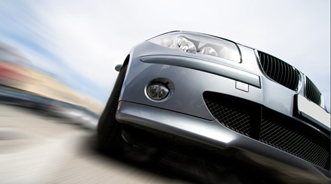RVI: Where Will Used-Car Prices be in 2018?

By subscribing, you agree to receive communications from Auto Remarketing and our partners in accordance with our Privacy Policy. We may share your information with select partners and sponsors who may contact you about their products and services. You may unsubscribe at any time.
STAMFORD, Conn. –
Used-car supply remains tight, despite slight loosening over the course of this year. Why, then, do prices seem to be on the way down? In the latest RVI Risk Outlook, officials explained that on top of seasonality, there are a few factors pushing this trend.
As used-car prices saw a slight 0.2-percent monthly decrease in August, consumers flocked to the new-car market as summer wrapped up.
RVI explained that while low supply has kept used prices high, "new-car prices have been flat and incentive activity is on the rise over the past few months."
This activity in the new-car market has put downward pressure on used-car prices, RVI said.
In the near future, though, used-car supply is expected to expand exponentially from 2014 through 2018.
The result?
Subscribe to Auto Remarketing to stay informed and stay ahead.
By subscribing, you agree to receive communications from Auto Remarketing and our partners in accordance with our Privacy Policy. We may share your information with select partners and sponsors who may contact you about their products and services. You may unsubscribe at any time.
RVI forecasted that used-car prices are expected to decline around 5.8 percent from current levels by 2018.
The new-car market will also play a role in this decrease, as well.
"New-car competition is also expected to increase gradually, resulting in slightly lower new-car prices. These lower new-car prices, along with increased used vehicle supply, will result in softerning used-car prices through 2018," RVI said.
The Impact on Residuals
RVI also shared briefly how residuals are shaping up as used-car prices start dropping down to more normal levels. The firm touched on one fuel-efficient segment, in particular.
Analysts explained that used-vehicle prices for compacts have underperformed the market average for the past 12 months, perhaps due in part to gas prices evening out as summer got underway.
It also seems that consumers may be wary of some used hybrid models, taking note of their high depreciation rates as of late.
Within the past year, Kelley Blue Book noticed auction values for late-model Honda Civic Hybrids have declined at a faster pace than their non-hybrid counterparts.
The result of this faster depreciation is now a larger number of the Honda Civic Hybrid variants are cheaper to own. Analysts made that assertion in KBB’s September Blue Book Market Report — Used Car Edition.
Despite the Honda Civic Hybrid costing around $5,500 more on average than its Civic counterparts, KBB indicated the Honda Civic Hybrid from the 2003 through 2006 model years all fall below the cost of the Civic LX.
In terms of auction value, analysts pointed out the 2007 model-year Civic Hybrid costs only $100 more than the Civic LX model, and the 2008 model year for both the Civic Hybrid and Civic LX cost the same at $8,200 each.
"This reiterates the understanding that consumers are not willing to pay the money for older hybrid models and there is still a slight uncertainty in the market around hybrid vehicles in regard to how they depreciate and what the maintenance factors will be as the vehicle ages," KBB analysts said.
Though lower gas prices and uncertainty about maintenance and residuals might have lowered consumer interest and prices for this more fuel efficient segment in recent months, RVI shared that prices will rise in 2014 as supply for this segment remains low.
But the increased rates may not last long.
"Higher gas prices will keep compact prices strong through 2015, although an increasing used-vehicle supply between 2014 and 2016 will put downward pressure on used-car prices," RVI said.
RVI expects used-car prices for compacts to decline around 1.3 percent through 2018.
Continue the conversation with Auto Remarketing on both LinkedIn and Twitter.


